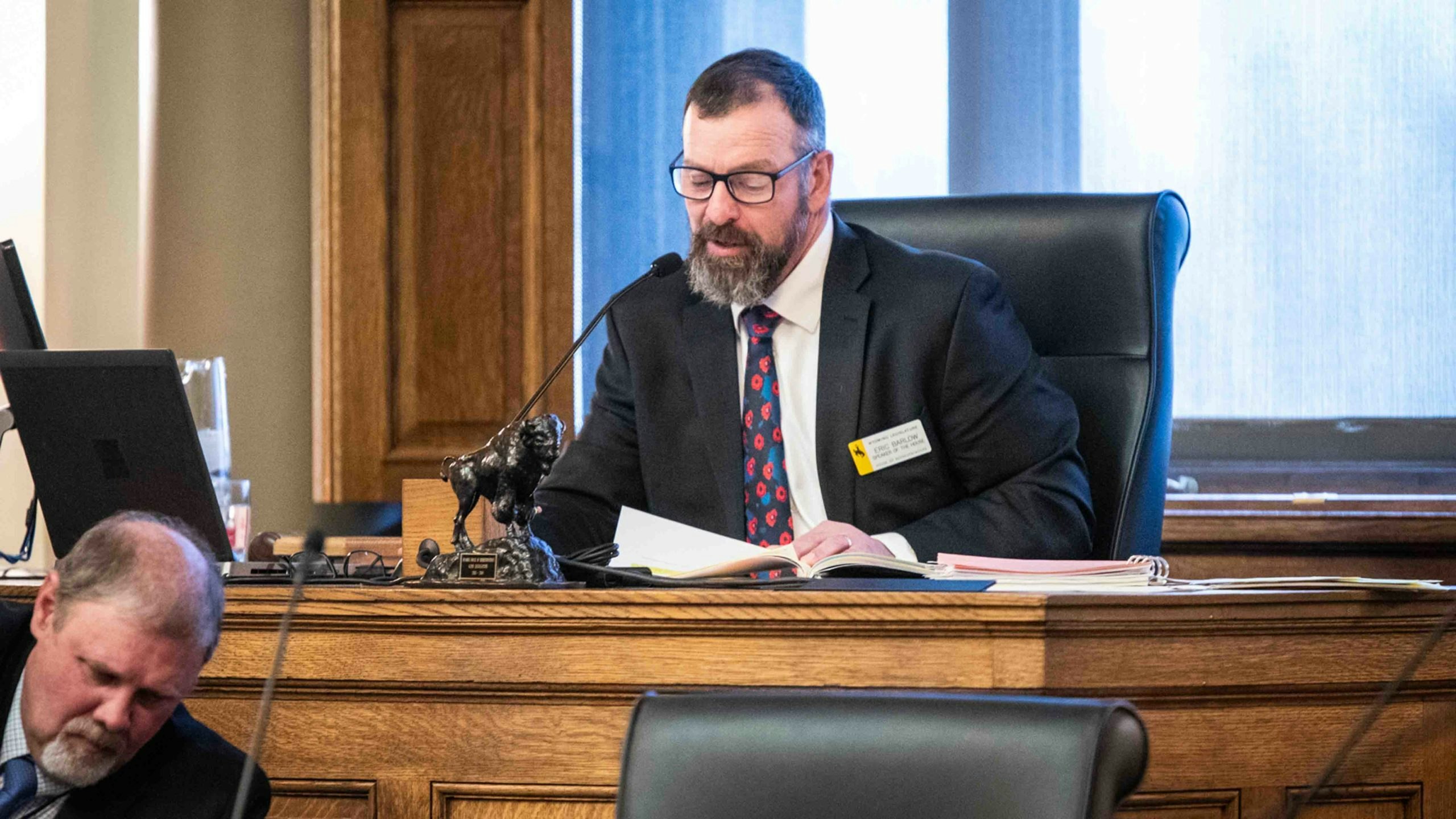By Clair McFarland, Cowboy State Daily
The Wyoming Legislature has nearly finalized its plan to spend $22 million on its own operations over the next two years.
Senate File 2, also known as the legislative budget or “feed bill,” would appropriate about $22 million to fund the body’s staff, technology, travel and consulting needs during the 2023-24 biennium.
It passed its third reading with overwhelming support Wednesday in the House of Representatives and is on its way to the Senate, where members will be asked to concur with any House amendments.
‘Small Footprint’
House Speaker Rep. Eric Barlow, R-Gillette, introduced the feed bill to the House on Monday by contrasting it against the much larger expenditures fueling the executive and judicial branches of state government.
“I want to put a little bit of perspective on this,” said Barlow. “The general appropriations bill we worked last week was $8.6 billion, round numbers.”
The state’s general budget also is in the tentative phase.
“Of that, there’s about $100 million of that is in from the judiciary (branch),” said Barlow. “What I’m trying to portray to you is the legislative branch, when it comes to a budget, as an equal branch of government we have a fairly small footprint at $22, almost $23 million,”
This biennium’s internal spending plan is up about $2 million from the last budget session: In 2020 the legislature self-funded to about $20.8 million. In 2018 the Legislature passed a $16.2 million biennium budget for itself, compared with about $18.3 million in 2016 and $17.7 million in 2014.
Amendments Failed
Rep. Albert Sommers, R-Pinedale, proposed an amendment Wednesday to appropriate extra money for an electronic voting system, but that motion failed.
Moments later Rep. Dan Zwonitzer, R-Cheyenne, suggested an amendment that would have increased the legislators’ pay to cover their living expenses while attending a legislative session or committee meeting, but that amendment failed. The per diem rate remains at $109 for each elected lawmaker’s working day, plus $150 in daily compensation.
Many lawmakers, an LSO representative noted last week, choose to forego their per diem when they meet by Zoom virtual link only.
Wages
The bulk of the new budget is $9 million to staff the Legislative Service Office, which has about 40 full-time staffers and about four part-timers. LSO performs legal reviews, legislative revisions and provides assistance for policy-makers.
Elected legislators’ salaries and expenses are to be funded at about $1.2 million combined for full legislative sessions and about $2.26 million for interim efforts.
The cost for extra staff members to staff legislative sessions set at $649,608.
Employer paid benefits for LSO and legislators together is budgeted at about $4.6 million.
The 40-day policy-making sessions held on odd-numbered years cost about twice as much as the 20-day budget sessions of even-numbered years.
This budget is based on maintaining a legislative count of 60 representatives and 30 senators.
Travel and Dues
Travel expenses and per diem for out-of-state travel are budgeted at about $232,000.
In-state travel is to be funded at roughly $2 million.
The Legislature plans to pay $267,587 in dues to the National Conference of State Legislatures and $76,800 in dues to the Energy Council, which Barlow called a “breadbasket” of the energy industry.
Another $220,298 is budgeted for the Council of State Governments.
Expenses
Telecommunications is slated to receive $50,000 in funding. Network connections and computer backups are to cost $10,000 for the biennium.
General informational technology and other administrative support are slated at $1 million.
A line item titled “statutes, session laws and digests,” is budgeted at $395,000.





